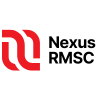
In today’s hyper-connected world, a company’s reputation is its most valuable asset. A single misstep, a negative review, or a data breach can tarnish a brand’s image and lead to significant financial losses. To stay ahead of the curve, businesses must be proactive in managing their reputation.
The Evolving Reputation Landscape 🌍
The way we perceive and interact with brands has changed dramatically. Social media has given consumers a powerful voice, and negative experiences can spread like wildfire. Additionally, the rise of fake news and misinformation can further complicate reputation management.
Emerging Trends in Reputation Risk Management
To navigate this complex landscape, businesses must adapt their reputation management strategies. Here are some key trends to watch:
Proactive Reputation Management:
- Anticipate Crises: Identify potential risks and develop crisis response plans.
- Monitor Social Media: Track brand mentions and sentiment to identify emerging issues.
- Build Strong Relationships with Stakeholders: Foster positive relationships with customers, employees, and investors.
AI-Powered Reputation Management:
- Sentiment Analysis: Use AI to analyze social media sentiment and identify potential crises.
- Crisis Response Automation: Automate certain aspects of crisis response, such as sending out automated messages.
Ethical and Sustainable Reputation Management:
- Corporate Social Responsibility: Engage in socially responsible practices to enhance brand reputation.
- Ethical Supply Chain Management: Ensure ethical sourcing and production practices.
Employee Advocacy:
- Empower Your Employees: Encourage employees to share positive experiences about the company.
- Employee Advocacy Programs: Create programs to incentivize employee advocacy.
Crisis Communication and Management:
- Swift Response: Respond to crises promptly and transparently.
- Effective Communication: Communicate clearly and empathetically with stakeholders.
Real-World Examples of Effective Reputation Management
- Apple’s Product Launches: Apple has mastered the art of creating hype and managing expectations around its product launches.
- Starbucks’ Social Responsibility: Starbucks has successfully leveraged social responsibility initiatives to enhance its brand reputation.
- Netflix’s Content Strategy: Netflix’s ability to produce high-quality content has solidified its position as a leading streaming platform.
The Future of Reputation Management
As technology continues to evolve, so too will the landscape of reputation management. To thrive in this dynamic environment, businesses must embrace innovation and adapt to emerging trends.
By understanding the risks, leveraging technology, and building strong relationships with stakeholders, businesses can protect their reputation and build lasting brand loyalty.
Remember, a strong reputation is a valuable asset that can help your business weather any storm. So, let’s navigate the future with confidence and protect our brands!

